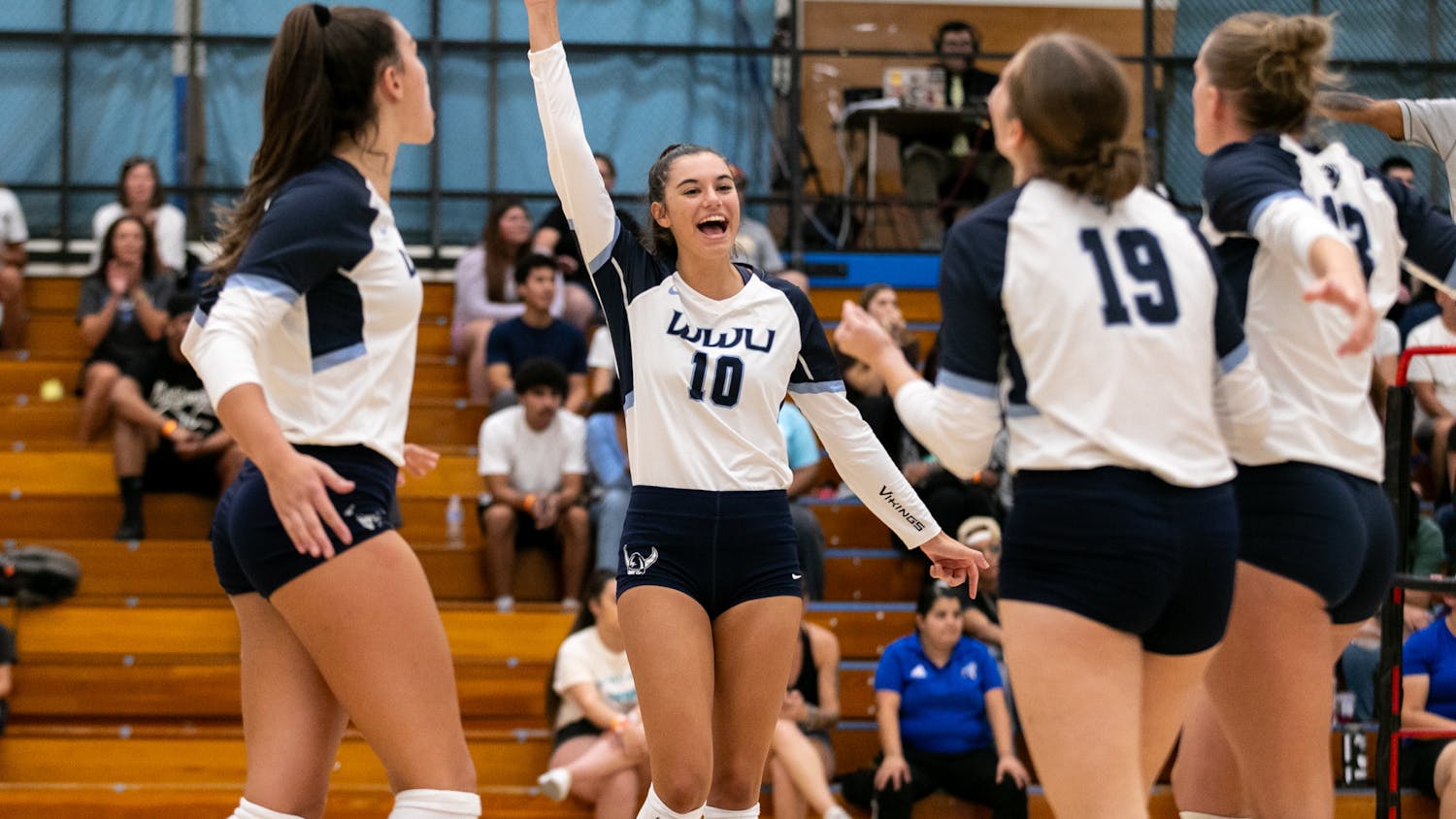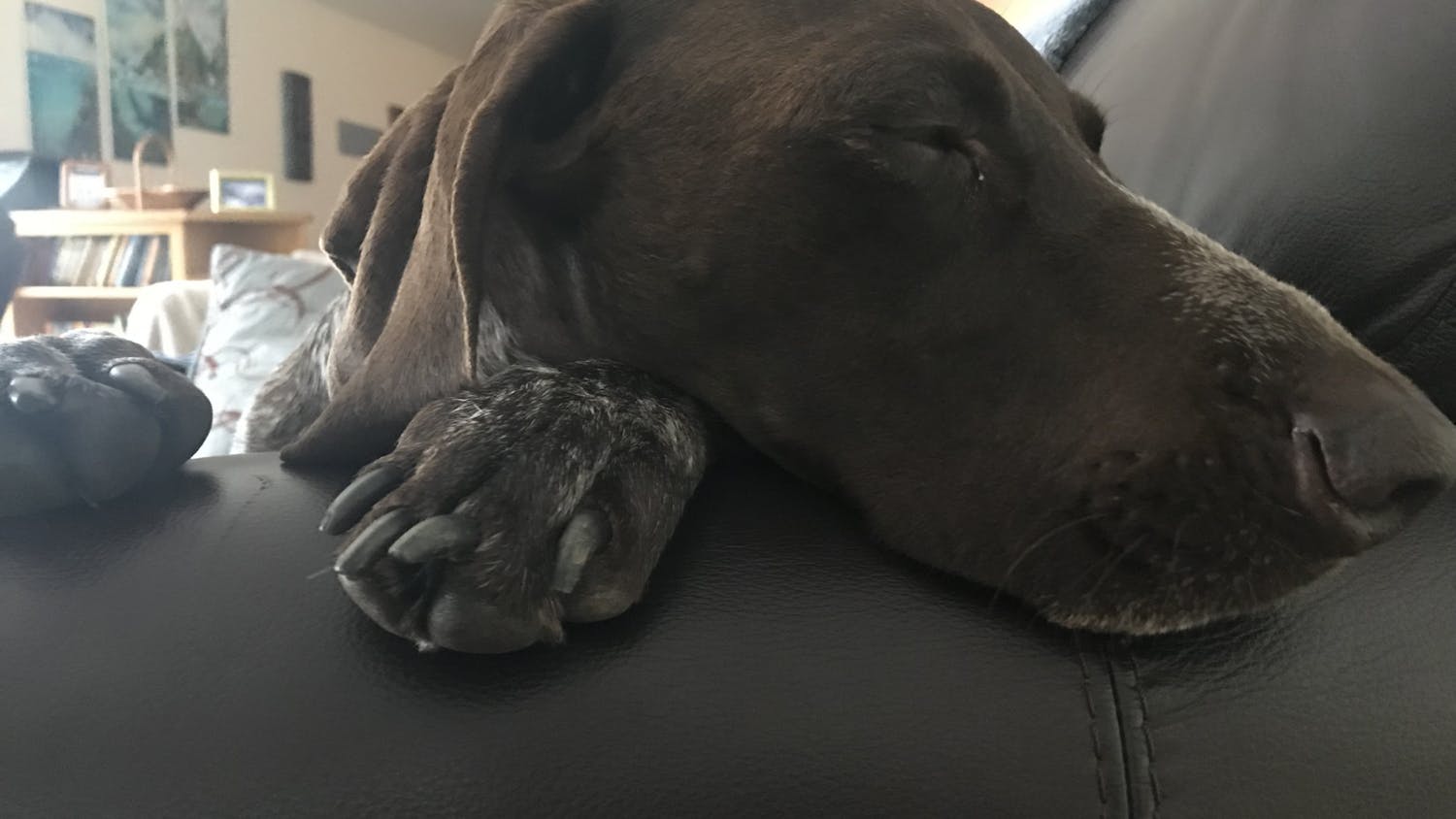As Western alumnus Ellen Dennis locked eyes with another’s, the room became silent. There were no words, just the synergy of two individual strangers as they performed.
This is what Dennis identifies as “one of the most powerful things humans can do.”
On Friday, Oct. 14, curious individuals gathered into Fairhaven College to participate in a version of the world’s biggest eye contact experiment.
Dennis organized Eye Contact and Human Connection after hosting and partaking in the event over 500 times. She gained inspiration five years ago after learning about social boundaries and human connection.
“(The activity) struck a chord, and I got a better understanding of what that means to us,” Dennis said.
The event had a turnout of 30 people. At the event, Dennis instructed participants to write what they expected the experience to be, and then she had them partner up, take deep breaths and stare into each other eyes. Each encounter would last from around three to five minutes.
On the chalkboard, Dennis allowed participants to write under one side that read “Expectations” and the other which read “Experience.”
“We’re so afraid. The other side of the coin is that we are so afraid of connecting with other people..."
Western alumnus Ellen Dennis
Gareth Magiskog, a direct support professional from Cascade Connections, attended the event with no expectations except from himself to be open to others. After learning about the event through Facebook, he came by himself.
For Makiskog, the core of the activity reiterated lessons he was taught in deaf and American Sign Language culture.
“The event for me was like a lesson learnt about how humans really ought to connect,” Makiskog said in an email. “In (deaf and) American Sign Language culture, it (puts) emphasis on eye contact while talking face to face where people who can talk verbally doesn't have to have eye contact all of the time.”
Makiskog said he felt the connection through “mutual understandings and shared emotions.”
Senior Safiya King, who attended the event for the first couple of hours, took part in a similar activity in high school. At the time, she and her classmates didn’t take the movement seriously.
“I was interested in seeing how I had changed with some years, and how I would react, and it was actually a much different experience,” King said.
After experiencing the event as a college student now, King described the feeling as “anxious but also fulfilling.”
King took away personal realizations from her point of view regarding her communication skills.
“Something that I noticed is my mind when engaging with other people. It was very easy to get stuck in my head. I would be staring at somebody and feel kind of weird, so I would start to think ‘What am I going to have for dinner?,’” King said. “I kind of realized that I need to give more of my attention to people when I’m interacting with them.”
Dennis hopes to continue connecting individuals in the future as a career. Her dream occupation is to work with queer populations doing somatic psychology. She has already been asked to host two more human connection events down south as well as another event on Saturday, Oct. 29.
“We’re so afraid. The other side of the coin is that we are so afraid of connecting with other people, particularly in the United States and in this western culture, we sexualize connections with people. We need connection so badly. It’s very difficult for us to engage because it’s sexualized, and it doesn’t have to be,” Dennis said.





